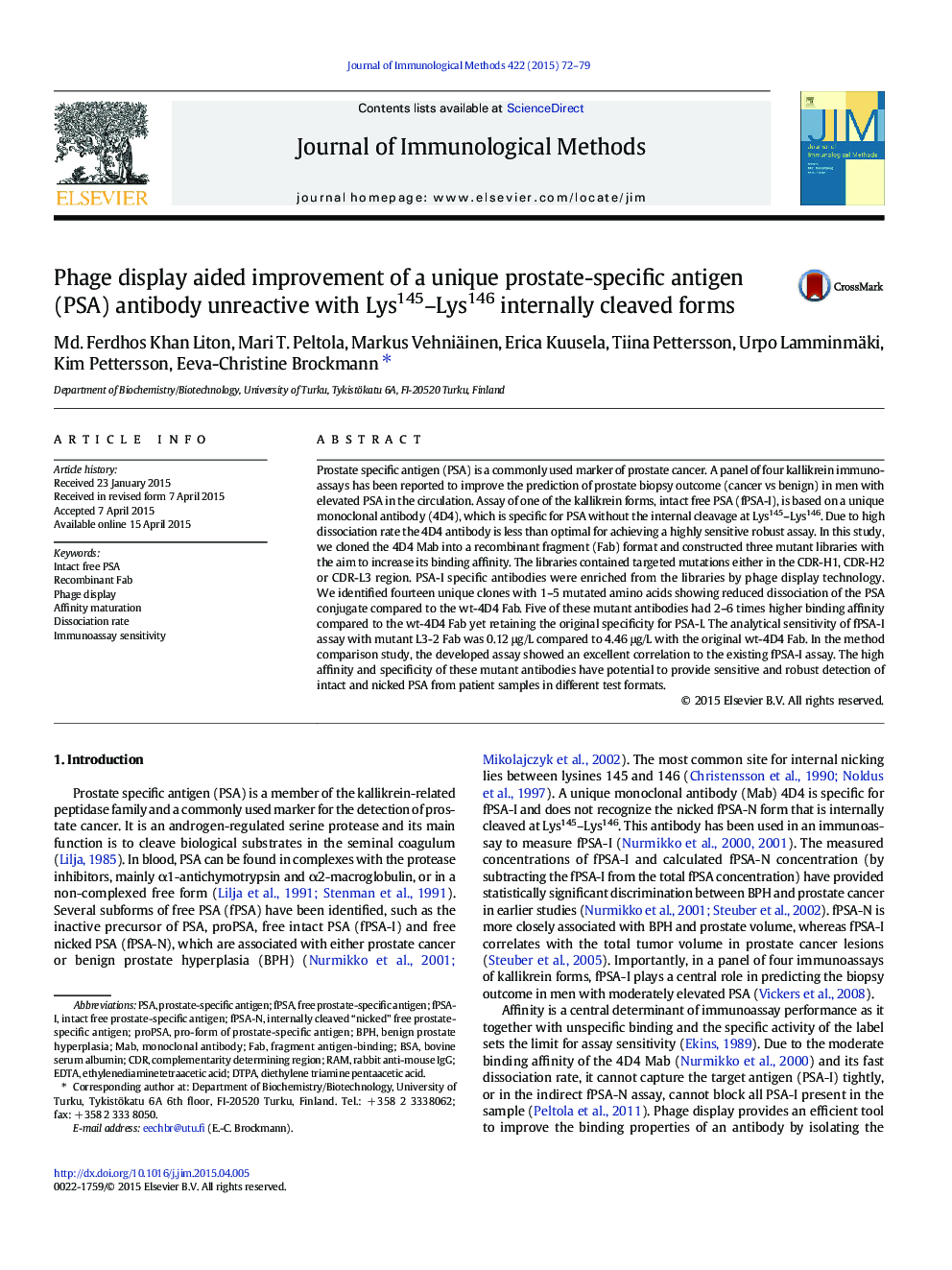| Article ID | Journal | Published Year | Pages | File Type |
|---|---|---|---|---|
| 2088052 | Journal of Immunological Methods | 2015 | 8 Pages |
Abstract
Prostate specific antigen (PSA) is a commonly used marker of prostate cancer. A panel of four kallikrein immunoassays has been reported to improve the prediction of prostate biopsy outcome (cancer vs benign) in men with elevated PSA in the circulation. Assay of one of the kallikrein forms, intact free PSA (fPSA-I), is based on a unique monoclonal antibody (4D4), which is specific for PSA without the internal cleavage at Lys145-Lys146. Due to high dissociation rate the 4D4 antibody is less than optimal for achieving a highly sensitive robust assay. In this study, we cloned the 4D4 Mab into a recombinant fragment (Fab) format and constructed three mutant libraries with the aim to increase its binding affinity. The libraries contained targeted mutations either in the CDR-H1, CDR-H2 or CDR-L3 region. PSA-I specific antibodies were enriched from the libraries by phage display technology. We identified fourteen unique clones with 1-5 mutated amino acids showing reduced dissociation of the PSA conjugate compared to the wt-4D4 Fab. Five of these mutant antibodies had 2-6 times higher binding affinity compared to the wt-4D4 Fab yet retaining the original specificity for PSA-I. The analytical sensitivity of fPSA-I assay with mutant L3-2 Fab was 0.12 μg/L compared to 4.46 μg/L with the original wt-4D4 Fab. In the method comparison study, the developed assay showed an excellent correlation to the existing fPSA-I assay. The high affinity and specificity of these mutant antibodies have potential to provide sensitive and robust detection of intact and nicked PSA from patient samples in different test formats.
Keywords
proPSADTPACDRmAbFree prostate-specific antigenPSABSAfPSAbovine serum albuminMonoclonal antibodyEDTAEthylenediaminetetraacetic aciddiethylene triamine pentaacetic acidAffinity maturationRamFabRecombinant Fabfragment antigen-bindingcomplementarity determining regionDissociation ratePhage displayBPHBenign prostate hyperplasiaprostate-specific antigen
Related Topics
Life Sciences
Biochemistry, Genetics and Molecular Biology
Biotechnology
Authors
Md. Ferdhos Khan Liton, Mari T. Peltola, Markus Vehniäinen, Erica Kuusela, Tiina Pettersson, Urpo Lamminmäki, Kim Pettersson, Eeva-Christine Brockmann,
